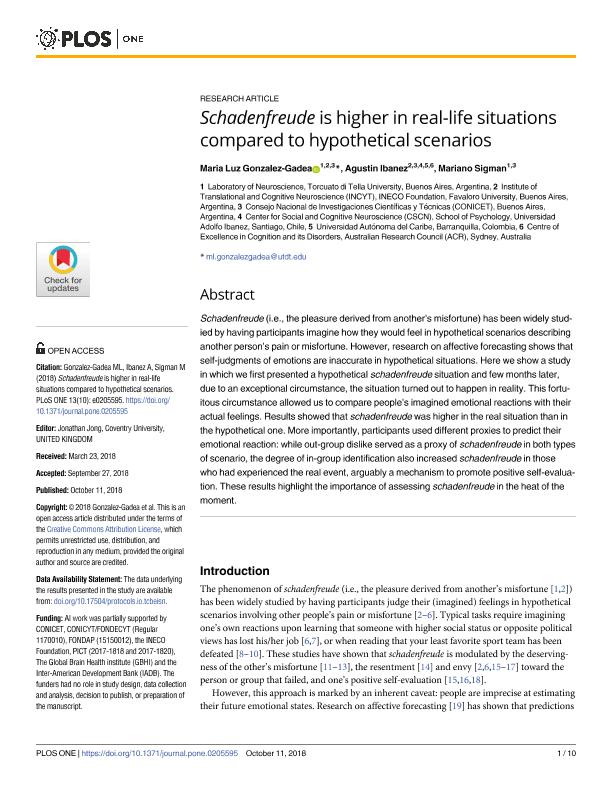Artículo
Schadenfreude is higher in real-life situations compared to hypothetical scenarios
Fecha de publicación:
10/2018
Editorial:
Public Library of Science
Revista:
Plos One
ISSN:
1932-6203
Idioma:
Inglés
Tipo de recurso:
Artículo publicado
Clasificación temática:
Resumen
Schadenfreude (i.e., the pleasure derived from another's misfortune) has been widely studied by having participants imagine how they would feel in hypothetical scenarios describing another person's pain or misfortune. However, research on affective forecasting shows that self-judgments of emotions are inaccurate in hypothetical situations. Here we show a study in which we first presented a hypothetical schadenfreude situation and few months later, due to an exceptional circumstance, the situation turned out to happen in reality. This fortuitous circumstance allowed us to compare people's imagined emotional reactions with their actual feelings. Results showed that schadenfreude was higher in the real situation than in the hypothetical one. More importantly, participants used different proxies to predict their emotional reaction: while out-group dislike served as a proxy of schadenfreude in both types of scenario, the degree of in-group identification also increased schadenfreude in those who had experienced the real event, arguably a mechanism to promote positive self-evaluation. These results highlight the importance of assessing schadenfreude in the heat of the moment.
Palabras clave:
Schadenfreude
,
real-life situations
,
hypothetical scenarios
Archivos asociados
Licencia
Identificadores
Colecciones
Articulos(SEDE CENTRAL)
Articulos de SEDE CENTRAL
Articulos de SEDE CENTRAL
Citación
González Gadea, María Luz; Ibañez, Agustin Mariano; Sigman, Mariano; Schadenfreude is higher in real-life situations compared to hypothetical scenarios; Public Library of Science; Plos One; 13; 10; 10-2018; 1-10
Compartir
Altmétricas




